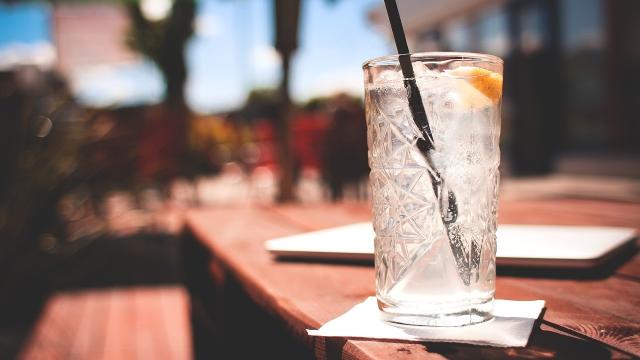The perils of drinking too much alcohol run deep – even if there’s still an ongoing debate as to how much is too much. A new study published Monday in Microbiome suggests one of those perils is a mouth filled with potentially harmful bacteria.
Researchers at New York University and elsewhere studied spit samples from over 1,000 healthy volunteers between the ages of 55 of 84 who had participated in earlier surveys. In addition to their spit samples, the volunteers had also disclosed their regular eating habits within the past year, including alcohol consumption. Using a form of RNA sequencing, the researchers charted out the bacterial community – or microbiome – of each volunteer’s mouth.
They found that, on average, reported alcohol drinking was associated with a higher abundance of bacterial clans known to contain germs that cause gum disease – a known culprit behind stinky breath – as well as a lower abundance of Lactobacillales, a bacterial order linked to better oral health. Drinkers also had higher levels of bacteria from the genus Neisseria. Some of the bacteria in this genus are worrying because they produce the carcinogen acetaldehyde when they munch on alcohol, though there’s no direct evidence that these mouth bacteria actually cause cancer. The greater someone’s reported drinking was, the likelier it was they had more of these troublesome bacteria.
The authors say theirs is the largest, most comprehensive study to examine how our mouth microbiome, which is colonised by more than 700 bacterial species along with viruses and fungi, can be changed by alcohol. And their findings could provide a hint as to how alcohol increases the risk of certain diseases of the mouth and elsewhere.
“Such changes potentially contribute to alcohol-related diseases, including periodontal disease, head and neck cancer, and digestive tract cancers, but further research is needed to relate alcohol-related composition changes to disease phenotypes,” they wrote.
Alcohol might change the microbiome directly, the authors speculate, by killing off certain immune cells, damaging the teeth, or fundamentally changing our saliva’s composition. But at this point, it’s still unknown to what degree these microbial changes are the result of drinking alone. Heavy alcohol consumption tends to go hand-in-hand with a poorer diet and other less-than-ideal lifestyle choices like smoking, though the authors tried to control for smoking history and preexisting bad dental health in the current study.
The type of alcohol you regularly drink might also affect our bacterial neighbours, since they found some evidence that wine drinkers had a different microbiome than beer drinkers or non-drinkers.
The researchers plan to further investigate how these changes come about, and they also called for future studies that can tease out whether abstaining from alcohol can restore a healthier mouth microbiota, as well as research that includes a more diverse and younger population.
